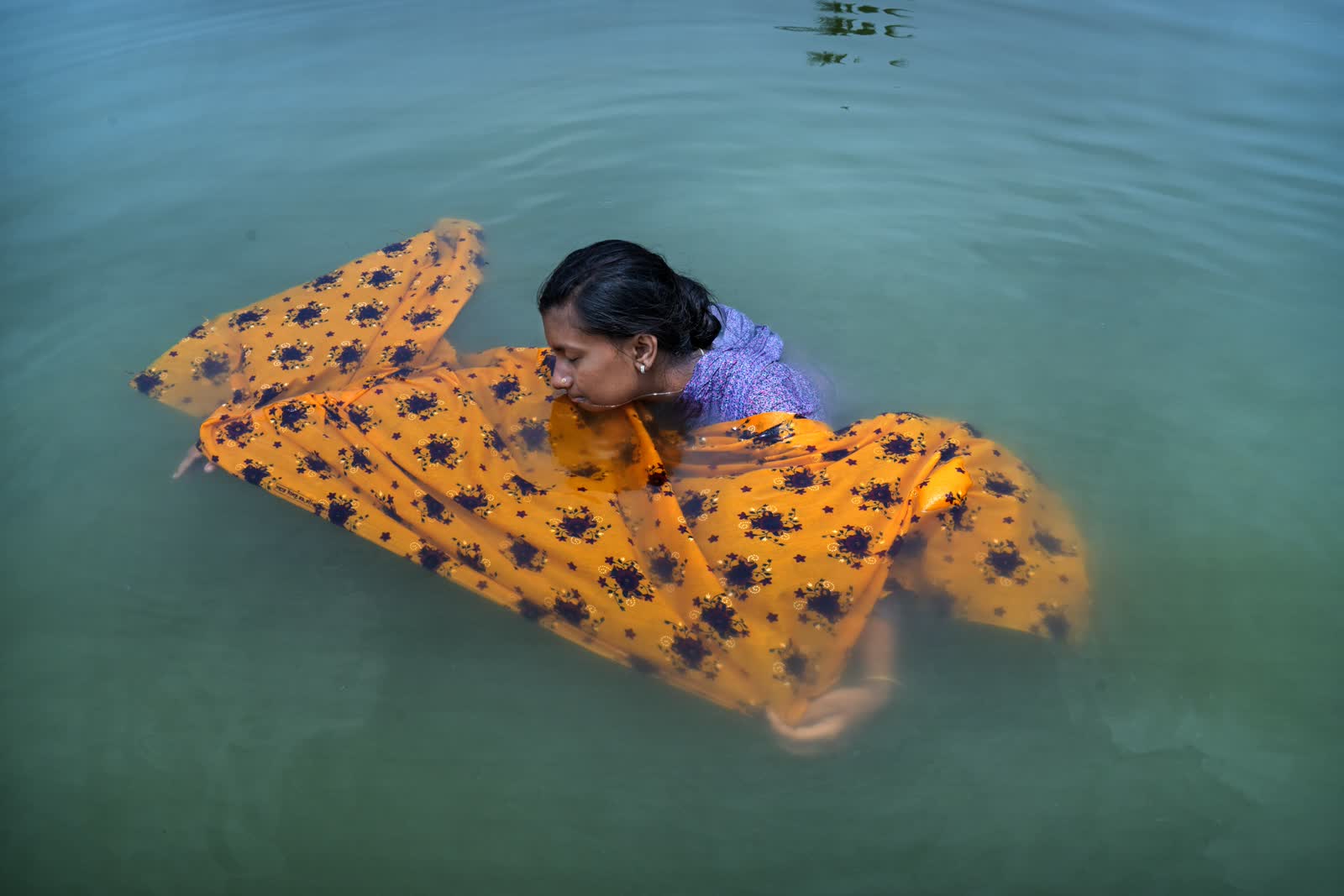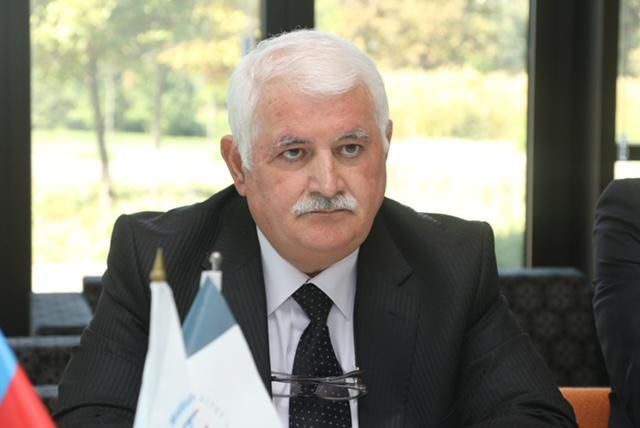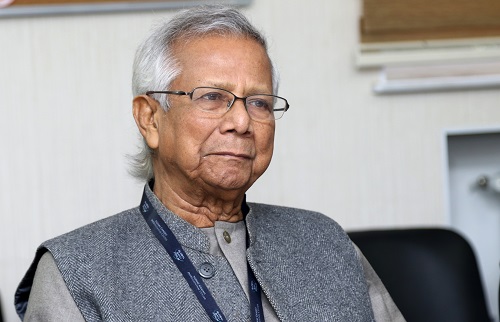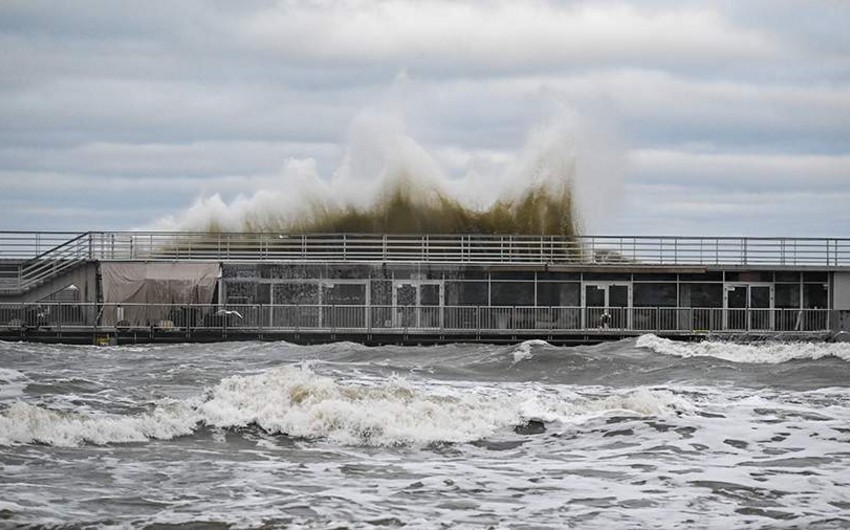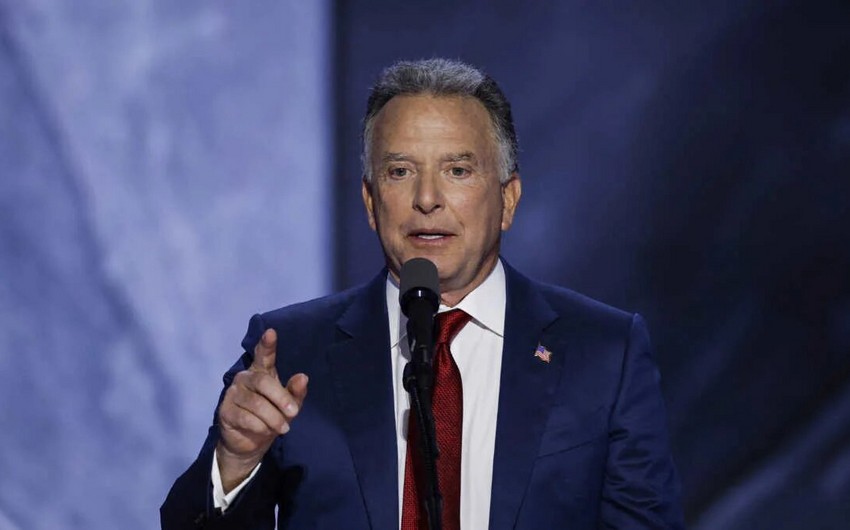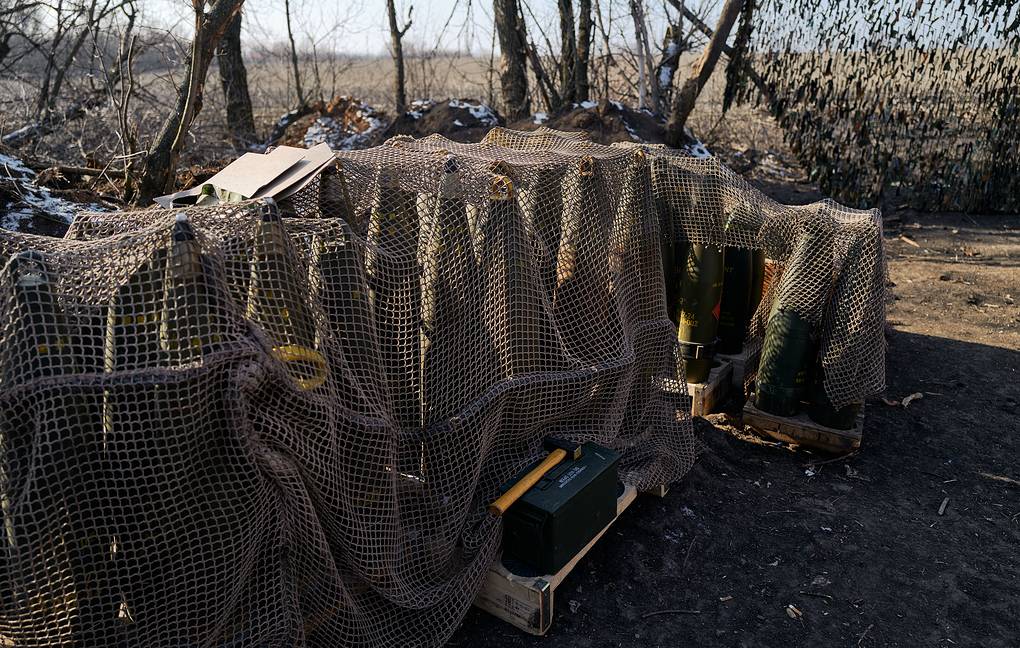The climate crisis may be a collective problem, but its impacts do not fall equally. Women and girls often bear the heaviest burdens.
Climate change acts as a threat multiplier, finding existing injustices and amplifying them. Women and girls already grapple with gender inequality, but when extreme weather devastates a community, the UN found that inequalities worsen: Intimate partner violence spikes, girls are pulled from school, daughters are married early, and women and girls forced from their homes face a higher risk of sexual exploitation and trafficking.
“When we look at who's affected worse, who's on the frontlines of the climate crisis, it's primarily women — women in poor and vulnerable countries,” Selwin Hart, UN Special Adviser to the Secretary-General on Climate Action and Just Transition, told CNN. “And unfortunately, our policies or strategies are really not geared to address this challenge.”
To explore the complex links between gender and climate change, CNN worked with seven women photojournalists who spent time with women and girls in seven countries across the Global South to document the challenges they face.
This visual project gives a snapshot of the myriad ways the human-induced climate crisis is upending their lives, but also shows how they are fighting back. Every image shows both struggle and survival, the battle to live a decent life in a swiftly changing climate.
Girls’ education in Nigeria
More than 10 million children between 5 and 14 years old are absent from classrooms across Nigeria, according to UNICEF. For girls, the statistics are even bleaker: In states in the northeast and northwest of the country, fewer than half attend school.
This education crisis is the result of a tangle of factors, including poverty, geography and gender discrimination, the UN agency adds. But against the backdrop of these individual factors is the broader context of the climate crisis.
Nigeria is growing hotter and dryer, and extreme weather such as flash floods and landslides are becoming fiercer and more frequent. Climate disasters can make schools inaccessible and classrooms unsafe. Communities struggling to cope with extreme weather sometimes turn to their children to help or to earn extra money to support the family. And girls, whose attendance at school is already discouraged in some communities, are often most affected.
For every additional year the average girl attends school, her country’s resilience to climate disasters can be expected to improve by 3.2 points on an index that measures vulnerability to climate-related disasters, according to estimates from the Brookings Institution.
There are efforts to support girls' education and equip them with the resources to cope with a fast-changing climate. The Center for Girls’ Education in the northern Nigerian city of Zaria runs programs to help girls stay in school and offers training on how to cope with the impacts of extreme weather.
“I feel when we give the girls education on climate change, how to mitigate it, it will go a long way in helping the girls in how to support themselves in times of difficulties, and even help them prepare for it,” said Habiba Mohammed, director of the Center for Girls’ Education.
Food insecurity in Brazil
The Amazon rainforest is a vital carbon sink, taking in more planet-heating carbon dioxide from the atmosphere than it releases. But the climate crisis and widespread deforestation for agriculture and ranching are taking a heavy toll, threatening to push the Amazon to a tipping point beyond which it may struggle to recover.
In northeast Brazil, a group of women in the Amazon Basin are challenging the tight grip that large corporations have on the forest. CNN spoke with nearly 60 women in this region who make their living gathering coconuts from native babassu palm trees, and say their livelihoods are increasingly under threat as large agricultural companies continue to tear down the forest and restrict women’s access to the trees.
More than 2,000 women rallied together to create the Babassu Coconut Breakers Movement to protect and ensure access to the native babassu palm forest.
This is not only a battle for their own food security, but also a fight for gender equality, members of the group told CNN, and it’s one which they hope will boost sustainable farming and help better protect this crucial rainforest.
Adriana Zehbrauskas is a Brazilian documentary photographer based in Phoenix. Her work is largely focused on issues related to migration, religion, human rights and underrepresented communities.
Human trafficking in the Philippines
One of the most pernicious ways the climate crisis can worsen gender inequality is by increasing the risk of sexual abuse and human trafficking.
The climate crisis destroys livelihoods, throws people into poverty, forces them away from their homes and communities — and for women and girls, it exacerbates their vulnerability to sexual exploitation, according to a 2022 report from the UN Office on Drugs and Crime. Abusers and traffickers are more able to target women and girls who find themselves in unfamiliar towns or forced into densely populated camps and shelters, crowded with strangers.
In the Philippines, the UN found that human trafficking increased in the wake of Typhoon Haiyan in 2013, which killed more than 6,000 people and displaced 4.4 million.
Climate scientists expect the frequency of the strongest typhoons and hurricanes to increase significantly in the coming decades, more than doubling by 2050 in nearly all regions of the world.
The Philippines has numerous organizations dedicated to trying to end human trafficking. The People's Recovery Empowerment Development Assistance (PREDA) Foundation helps free women and girls from brothels and sex traffickers and provides a refuge for survivors.
Maternal health in Pakistan
Pregnant women have a unique vulnerability to climate change — especially extreme heat. A mounting body of evidence has revealed links between heat waves and a slew of maternal health problems, including premature births, stillbirths and low birth weights.
For every 1 degree Celsius of temperature increase, the number of stillbirths and premature deliveries rises by about 5%, according to an analysis of 70 studies published by the British Medical Journal in 2020.
Sindh province in southeastern Pakistan is home to Jacobabad, one of the hottest cities on Earth. In 2022, an extreme heat wave in the province saw temperatures top 50 degrees Celsius (122 Fahrenheit).
Women in Sindh who were pregnant during this time told researchers from the maternal health nonprofit White Ribbon Alliance that they experienced myriad health problems, including fainting, sickness, loss of appetite and dehydration, according to a report published this year.
Many had no choice but to keep working and often outside, with little respite from scorching temperatures, which taxed their bodies further.
Even after birth, some women reported problems breastfeeding in the heat and concerns for their newborn’s health in stifling homes without fans or any other way to keep cool. The women called for better financial support and access to solar panels to power fans.
Migration in Guatemala
Guatemala is one of the world’s most climate vulnerable countries. The rainy season, which used to reliably start in May, has shifted much later. And when the rains do come, they are often intense and destructive.
The impact on Guatemala’s farming communities — including those in the country’s Western Highlands — is devastating. Destroyed crops and decimated livelihoods can force people from their homes in search of jobs and safety in other towns, and even other countries.
Women in these communities, many of whom have limited access to education and financial and social power, tend to shoulder the greatest impact. Men make up the majority of those who migrate, leaving women with a double burden: protecting their homes and children, and finding a way to make money until the men can send home remittances.
PWhile it’s hard to show a direct link between migration and climate change in Guatemala — there isn’t the data, and the decision to migrate is always based on many factors — many experts say climate change is an increasingly important trigger.
Nonprofits such as the Foundation for Ecodevelopment and Conservation are trying to ease the hardship by investing in women and girls in some of the country’s isolated communities. They are helping fund education and leadership training and teaching them skills such as agroforestry.
Child marriage in Bangladesh
Bangladesh is considered an “emergency hotspot” for girls’ rights according to humanitarian nonprofit Save the Children, which ranks countries with the highest risks that a girl will both be married as a child and face life-changing consequences from climate change.
The low-lying country is extremely vulnerable to the climate crisis. As the impacts of extreme weather push people further into poverty, and families become desperate to relieve some financial strain, the nonprofit says the risks of child marriage increase.
Twelve million girls are married before the age of 18 each year globally, according to Girls Not Brides. That is 23 girls every minute.
Marufa Khatun, from Satkhira in southwest Bangladesh, was married at 11 because her parents could no longer manage after cyclones and floods ripped through their community. Now 14, she is the mother of a 3-month-old baby. “I got married early because natural disasters are happening frequently now and our father cannot afford our expenses,” she told CNN.
Governments around the world have committed to end child marriage by 2030. But a recent analysis from Save the Children found that almost 9 million girls worldwide face extreme risk of climate disasters and child marriage every year.
Gender-based violence in Kenya
In less than a year Kenya has transitioned from a catastrophic multi-year drought to deadly flooding. In a country where 75% of people rely on farming for their main source of income, according to the World Bank, the swing between extremes is a crisis.
The extreme weather has triggered acute food insecurity and displacement. It’s also increasing the risk of gender-based violence, multiple studies have found. While the drivers of violence against women and girls are complex and multi-faceted, experts are clear that climate change amplifies the risks.
Stress from loss of income can aggravate intimate partner violence and during times of disaster, women may also be coerced into sexual exploitation in exchange for necessities or be forced to trek long distances to fetch food and water, putting them at greater risk of violence.
Violence against women and girls is the most widespread and pervasive human rights violation worldwide, estimated to affect one in three women throughout their lifetime, according to the UN.
Organizations are trying to break the cycle. The Coalition on Violence Against Women, a nonprofit in Kenya, champions the rights of women and girls and seeks to protect them from all forms of violence through advocacy and by providing services and resources.
Authors:Taiwo Aina (Nigeria), Adriana Zehbrauskas (Brazil), Lisa Marie David (Philippines), Saiyna Bashir (Pakistan), Victoria Razo (Guatemala), Fabeha Monir (Bangladesh),Khadija Farah (Kenya)
Source: CNN

